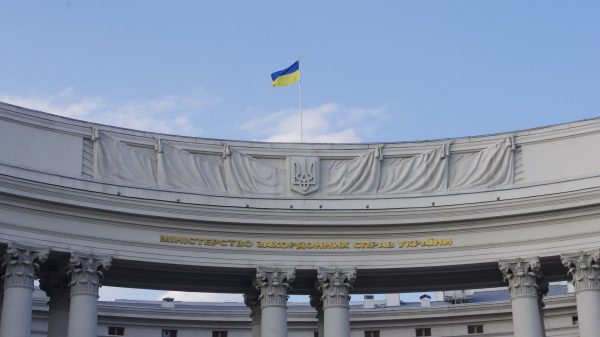 Mr. Sharp said the license fee could be replaced by a tax on broadband bills or a household fee depending on the value of the property Credit: Jeff Pugh for The Telegraph
Mr. Sharp said the license fee could be replaced by a tax on broadband bills or a household fee depending on the value of the property Credit: Jeff Pugh for The Telegraph
Wealthier households should pay more for the BBC, suggested Richard Sharp in his first interview since stepping down as chairman of the broadcaster.
Mr Sharp said the licensed fees may be reduced. be replaced by a tax on broadband bills or a property-based levy on households, as the current flat fee system is 'regressive'.
The government is currently considering replacing the £159. — an annual license fee that funds the work of the BBC, with a different funding model after 2027.
The cost of a television license should start to rise with inflation next year after the two-year freeze ends.
Speaking on the Friday before the latest episode of The Telegraph Chopper's Politics podcast, Mr Sharpe said he was worried that the license fee was regressive because people with lower incomes paid the same as richer families.
Chopper's bonus episode about politics with Richard Sharpe
“I would be in favor of a form of mandatory payment — currently a license fee. There is one issue that is regressive and may need to be addressed,” he said. Households with lower incomes «pay the same price» for their public broadcasting.
He added: «You can look at models all over the world, there's a broadband tax, there's a family tax, and there's a license fee . . The transition from one working mechanism to another leads to disruptive changes.
Lucy Powell, secretary of shadow culture, suggested earlier this year that the Labor government would consider checking royalties.
Mr Sharpe said he resigned from the BBC in April after an investigation revealed that although he was not involved in facilitating an £800,000 loan from a friend to Boris Johnson when he was at Downing Street, Mr. Sharp «failed to disclose the information.» potential perceived conflicts of interest» to the committee that appointed him to the BBC. Christopher Hope and Mr Sharp drink a pint outside the Red Lion pub in Westminster after recording the final Chopper's Politics podcast. but warned that anyone taking the job would have a target on their back.
He said: “When there is a pro-Labor chair, there is a target. So the short answer is yes. This is a fairly important institution, and whoever chairs it is vulnerable.
“I don’t think the fact that I donated to the party and the last donation to the party was in 2010 should have disqualify me.
«But this means that in the recruitment process, they must be sure that the chairman has as a primary goal the strength of the BBC as an independent organization and conducts himself impartially.» He would advise anyone trying to replace him to «make sure that you and your family know what you're getting into» due to an increase in what he called «anger-inducing» news coverage, leading to «personal attacks» to get «clicks and connections.»
< p>In a wide-ranging interview, when asked about Gary Lineker's social media behavior, Mr Sharp said the issue of social media engagement of freelancers and BBC staff «needs to be addressed».
The former chairman also said that he is concerned that the way license fees are enforced means women are disproportionately likely to be prosecuted for non-payment when inspectors arrive.
License fee evasion is a crime. Nearly 1,000 people a week, seven out of ten of whom are women, are being prosecuted for failure to pay a license fee.
In contrast to failure to pay utility bills and parking tickets, which are treated as civil cases. , those who refuse to pay for a TV license can get a criminal record if they do not pay a court fine.
«Obviously this is a regression»
He said: «Obviously these two issues are regressive, and also that the collection process can be harder on women because women often open the door [when TV license inspectors call].
«It's not perfect . The question is, is there a better system and what kind of disruption might be caused by changing it? And that's for the parliamentary debate.
“Both sides support the BBC broadly. So I think there are ideologues who have a different point of view, but I think they are in the minority. And then the BBC has to deliver the content.”
However, Mr Sharp warned that decriminalizing the license fee could lead to more people being sued in civil courts for non-payment.
He said: «The sanction itself determines behavior. If you go to civil court, you can actually increase the number of lawsuits that take place. So it's not as obvious as you think.
«As a result that people pay a license fee, you get a common good, that is, you get an incredible value of what people are actually paying for a household. .”


























































Свежие комментарии